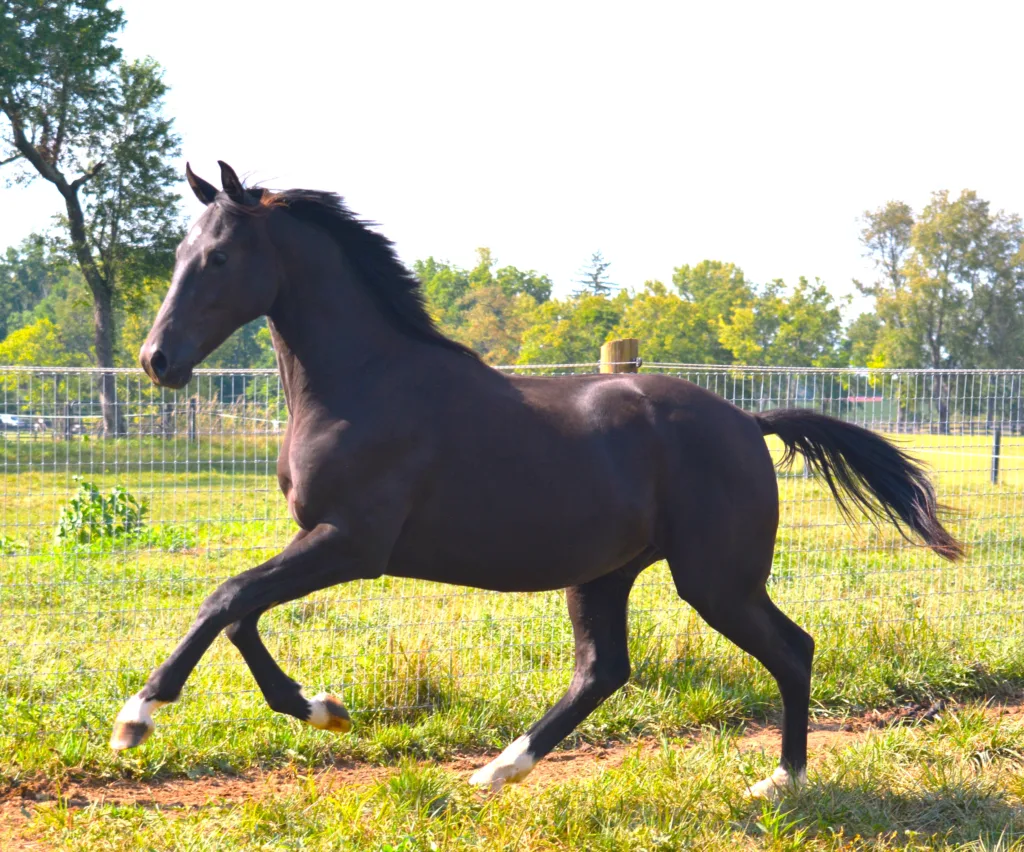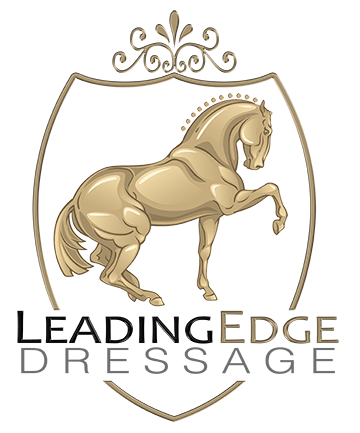How they lead.
If you bring your horse to my farm, the first thing they will learn is how to be polite when being led to turnout or brought into the barn. And if I have staff doing this task for me, I will ask them to do the same. All too often employees are in a hurry and not paying attention to how the horse behaves while being led. I get it, they have a job to do and only a certain amount of time allowed. But this is an important part of each horse’s education. Setting the stage for education and understanding means that what we work on is not just riding or arena work. Creating a horse that can emotionally handle the situations that will be presented throughout his life in a calm and attentive way should be every trainer’s goal. And a horse that walks quietly with you is the first step.

One of my pet peeves is trainers who bypass these fundamental educational pieces. I have met Grand Prix horses that will barely walk beside you or need to be led with a chain over their nose so as not to drag their owners. This is so unnecessary, and it doesn’t take that much time to improve this behavior. Aside from that you will get a much better connection and willing cooperation from horses that have good ground manners.
I can usually tell how well your horse has been educated and what type of education it has by how they lead and how they behave when removing the halter and releasing them. You might think it is cute or they are just frisky, but when a horse bolts before you get the buckle undone, it is a symptom of a hole in your training foundation. This shows me a horse with a mindset that is not fully committed to being a partner in the dance between horse and human. They might work for you but not with you. That is a huge distinction. It will always be about what you make them do, instead of what you can create together.

My horses stand and let me rub their face after I take their halters off. As if to say” have a nice day, I will see you in a bit.” They trust me and know I will take care of them. This allows them to relax and not stress about the world. This attitude carries over to the saddle and arena time, making it a much happier place for all.
So next time you are leading your horse to his pasture, pay attention. Do they actually want to be with you? Or can they not wait to run off?
